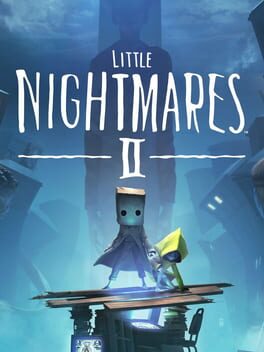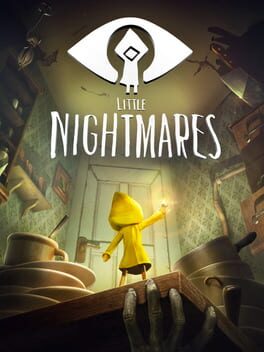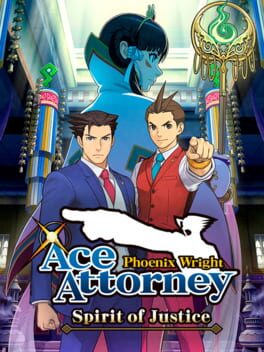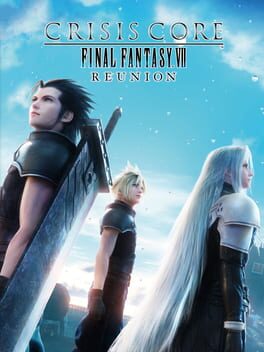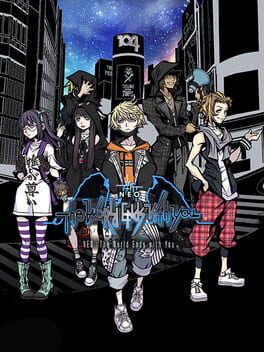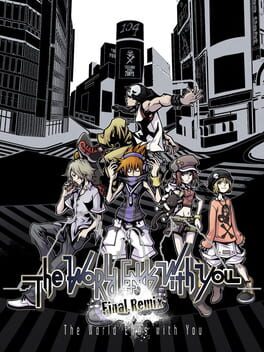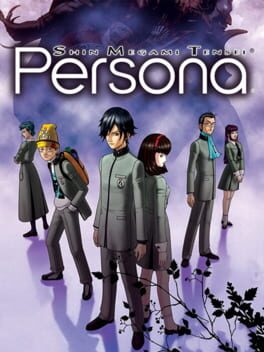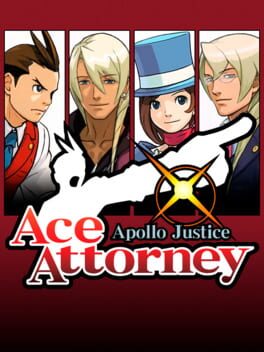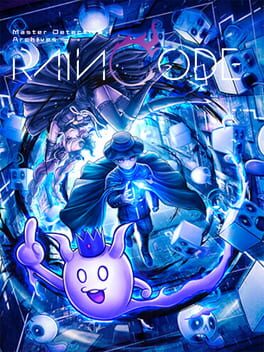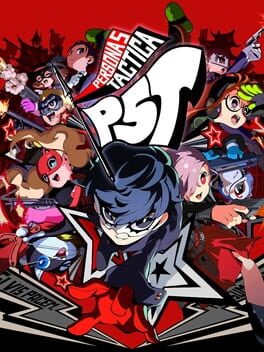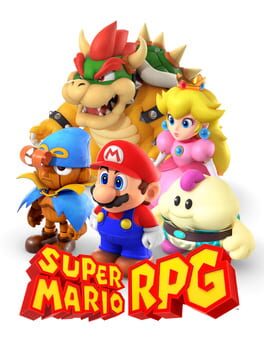Brad_Taylor
2001
Final Fantasy X is largely heralded as the 2nd massively innovative titan in the long running series, and it's very easily to see why. Even past its numerous growing pains. X featured the beginning of many of the functions, and basic elements that we now come to expect from not only each Final Fantasy but most AAA games in general. Fully 3D rendered environments, full voice acting, an entirely linear structure, and a new level-up system never seen in the series are all cemented here. It all makes for a time capsule of a game, that surprisingly holds up incredibly well, especially with the HD remasters.
Final Fantasy X boasts my favorite combat system in the series to date. The sphere grid is an excellently fleshed-out system, which offers the entire potential for a unique experience and party build each play through. It's smartly designed so that each character has a very specifically designated path, yet it still allows every character to explore whatever path they want, meaning no ability aside from Yuna's Aeons is locked to any specific character. This flexibility in how you can personalize your own experience with the game pairs wonderfully with your engagement with the system, as the path you choose to take on the grid can be thought out and plotted in advance, to decide what build you want for each character right at the start. I also just think the combat is very snappy and addictive. Due to how the combat has been changed from ATB to a straight turn-based system, the battles go by within mostly a minute or two. Final Fantasy 100% has its fair share of padding, but i feel that X manages to streamline that experience to an admirable degree. Final Fantasy X is a game that respects your time, more than a lot of RPGs can say.
I'm not the biggest fan of its story. I think in regards to its villain, mythos, and iconography, 7 has this trumped. But the intentional choices in its design are not to be scoffed at. I've only played Final Fantasy 7, 16, and a good chunk of 15, but I think that X's colour pallet is by far my favorite. The aforementioned 3 all have intentionally dark and brooding design choices, so it's so nice to see a brighter and more vibrant Final Fantasy to contrast them. This is a definitive summer game, and it uses its water theme to create some truly beautiful visuals in the FMV cutscenes. I mentioned how I wasn't big on X's story, but what ultimately ended up solidifying the game for me was its characters. Yuna and her guardians each have a specific role in the story, and it's very clear to see they wrote the story with these characters in mind. Each of them would lessen the impact of the game if a single one was taken out, and that only goes to show how much effort was put into making you like each of the characters on this pilgrimage. No matter how small, they each get an arc, which is an effect you lose with the addition of optional characters, something the original Final Fantasy 7 suffered from. I was particularly interested in how Tidus and Yuna's romance unfolded, and it's so nice to see Square actually take the plunge to canonize a couple. The theme of death is portrayed in such a compelling way, as it is woven into the very fabric of the story. Tidus' arc only cements it as one of the most outwardly and devastating finales in all Final Fantasy.
Final Fantasy X boasts my favorite combat system in the series to date. The sphere grid is an excellently fleshed-out system, which offers the entire potential for a unique experience and party build each play through. It's smartly designed so that each character has a very specifically designated path, yet it still allows every character to explore whatever path they want, meaning no ability aside from Yuna's Aeons is locked to any specific character. This flexibility in how you can personalize your own experience with the game pairs wonderfully with your engagement with the system, as the path you choose to take on the grid can be thought out and plotted in advance, to decide what build you want for each character right at the start. I also just think the combat is very snappy and addictive. Due to how the combat has been changed from ATB to a straight turn-based system, the battles go by within mostly a minute or two. Final Fantasy 100% has its fair share of padding, but i feel that X manages to streamline that experience to an admirable degree. Final Fantasy X is a game that respects your time, more than a lot of RPGs can say.
I'm not the biggest fan of its story. I think in regards to its villain, mythos, and iconography, 7 has this trumped. But the intentional choices in its design are not to be scoffed at. I've only played Final Fantasy 7, 16, and a good chunk of 15, but I think that X's colour pallet is by far my favorite. The aforementioned 3 all have intentionally dark and brooding design choices, so it's so nice to see a brighter and more vibrant Final Fantasy to contrast them. This is a definitive summer game, and it uses its water theme to create some truly beautiful visuals in the FMV cutscenes. I mentioned how I wasn't big on X's story, but what ultimately ended up solidifying the game for me was its characters. Yuna and her guardians each have a specific role in the story, and it's very clear to see they wrote the story with these characters in mind. Each of them would lessen the impact of the game if a single one was taken out, and that only goes to show how much effort was put into making you like each of the characters on this pilgrimage. No matter how small, they each get an arc, which is an effect you lose with the addition of optional characters, something the original Final Fantasy 7 suffered from. I was particularly interested in how Tidus and Yuna's romance unfolded, and it's so nice to see Square actually take the plunge to canonize a couple. The theme of death is portrayed in such a compelling way, as it is woven into the very fabric of the story. Tidus' arc only cements it as one of the most outwardly and devastating finales in all Final Fantasy.
2021
2017
This review contains spoilers
I feel that Ace Attorney and Yakuza are the only two video game franchises where I couldn't allow their faults to hold me back from loving each game. Ace Attorney's way of carrying itself instantly gives me a feel that not many games have managed.
Spirit of Justice is probably the most flawed Ace Attorney game, right ahead of Justice for All. The entire emotional core of SOJ hinges on the idea that you can look past the deep, deep retcons that plague the game. As the "new protagonist", Apollo has been fighting for relevancy the last two games, and it is quite clear that the new team is equally fighting to carry Apollo on after Takumi gave very little room for expansion. This means that Apollo's now 3 backstories have to attempt to coexist on a single cohesive timeline. It was never going to not feel awkward, but despite all of that, i feel that Apollo's third story present in Spirit of Justice, just may be his best, and the peak of his arc. SOJ sees the franchise take its first change in setting in the mainline series. Instead of Japanifornia, we now take the story to the fictional kingdom of Khura’in, where lawyers are nonexistent, and verdicts are handed down by a very flawed and misguided seance. In the very first case, Phoenix bursts into court and looks death in the face as he fights for the right to a fair trial. It is the absolute highest the stakes have ever been in AA, and I found myself speeding through the case just by how enthralling this new scenario managed to be. It wasn't then until the second case that my hype deflated significantly.
Spirit of Justice has a very confused, and two-sided structure. Where 3 of its 5 main cases revolve around the very politically charged revolution of Khura’in, the other two remaining cases slot in between these "main story" chapters, and tell very inconsequential filler stories. The first filler case even has the balls to step on Takumi's feet with retcons to one of the stories he wrote for Apollo Justice. Yet the second still somehow gets worse, as it features not a single investigation stage, only 2 parts of a single trial. It just comes across as the team not writing enough of the Khura’in plot, so to fill the quota of 5 cases, they pull some meaningless stories out. The cases aren't awful by themselves, I was sufficiently entertained by both, but it kills the pacing when the plot in Khura’in is so fast, and impactful in comparison. There is absolutely nothing wrong with less intensive cases, but the way it is implemented here is poor to say the least.
By the time the final case came around however, I found that my interest in the actual core plot was entirely cemented once I began to see how everything fit together. The plot with Dhurke and the royal family is excellently thought out and realized, and Dhurke's deeply personal relationship with Apollo served to ultimately give me the motivation to see the mystery through to the end. I'd be lying if I said I didn't tear up at Apollo's decision by the end of the game, but I really don't know if that was because of Apollo's emotional arc, or because I came to realize that this was the end of the Ace Attorney saga.... for now.
Spirit of Justice is probably the most flawed Ace Attorney game, right ahead of Justice for All. The entire emotional core of SOJ hinges on the idea that you can look past the deep, deep retcons that plague the game. As the "new protagonist", Apollo has been fighting for relevancy the last two games, and it is quite clear that the new team is equally fighting to carry Apollo on after Takumi gave very little room for expansion. This means that Apollo's now 3 backstories have to attempt to coexist on a single cohesive timeline. It was never going to not feel awkward, but despite all of that, i feel that Apollo's third story present in Spirit of Justice, just may be his best, and the peak of his arc. SOJ sees the franchise take its first change in setting in the mainline series. Instead of Japanifornia, we now take the story to the fictional kingdom of Khura’in, where lawyers are nonexistent, and verdicts are handed down by a very flawed and misguided seance. In the very first case, Phoenix bursts into court and looks death in the face as he fights for the right to a fair trial. It is the absolute highest the stakes have ever been in AA, and I found myself speeding through the case just by how enthralling this new scenario managed to be. It wasn't then until the second case that my hype deflated significantly.
Spirit of Justice has a very confused, and two-sided structure. Where 3 of its 5 main cases revolve around the very politically charged revolution of Khura’in, the other two remaining cases slot in between these "main story" chapters, and tell very inconsequential filler stories. The first filler case even has the balls to step on Takumi's feet with retcons to one of the stories he wrote for Apollo Justice. Yet the second still somehow gets worse, as it features not a single investigation stage, only 2 parts of a single trial. It just comes across as the team not writing enough of the Khura’in plot, so to fill the quota of 5 cases, they pull some meaningless stories out. The cases aren't awful by themselves, I was sufficiently entertained by both, but it kills the pacing when the plot in Khura’in is so fast, and impactful in comparison. There is absolutely nothing wrong with less intensive cases, but the way it is implemented here is poor to say the least.
By the time the final case came around however, I found that my interest in the actual core plot was entirely cemented once I began to see how everything fit together. The plot with Dhurke and the royal family is excellently thought out and realized, and Dhurke's deeply personal relationship with Apollo served to ultimately give me the motivation to see the mystery through to the end. I'd be lying if I said I didn't tear up at Apollo's decision by the end of the game, but I really don't know if that was because of Apollo's emotional arc, or because I came to realize that this was the end of the Ace Attorney saga.... for now.
Such a massive downgrade from the first. By the time the 3rd week came around, I found myself to be tuning most of the game out, but by that point I was already 2/3 through the game.
The strongest part of the original TWEWY, was in how it directly constructed its story around the character’s conflicts. In order to enter the reaper game, you must have an entry fee, which takes the form of your most precious belonging. In the original, that simply plot point earned each character an instant character point, and gave way for what each of their arcs would become. All of the original characters gain an insane amount of depth for what is a 15 hr DS game, so it’s quite underwhelming, and downright disappointing that this 40 hr game doesn’t have a single character that gets near to touching any of the original characters. That’s most likely why the entire last 3rd of Neo rests entirely on the expectation that you care about the original characters. Thankfully I do, but I still want the new characters to be up to par if I’m expected to be with them for a full 40 hours.
Then there’s the repetition of the story/gameplay. The original TWEWY was structured the exact same way as Neo, but the positive of TWEWY was that it was only 15 hrs long. It doesn’t waste your time, and the mysteries of this world we have yet to experience fuel every single day. Each day in the original was a learning experience for furthering the plot, but it seriously becomes an issue with Neo, where the plot drags its feet in almost every day besides the finale of each week. The story doesn’t actually begin to get to the point until week 3, due to one of the teams stalling for story reasons. But that is absolutely no excuse for how dull some of these days get.
Neo does improve massively on the combat of TWEWY. Basically anything would be better than the original’s, but somehow Neo manages to balance up to 6 whole characters being controlled simultaneously. I’ve never seen a game do that before. It’s quite a large undertaking to not make the combat cumbersome with such an ambitious idea, but it certainly makes it work.
Again, like the original, Neo has just as much style and purpose with its design choices as its original. The cutscenes in particular got a major upgrade. Both the 2D and 3D cutscenes make the effort to remain unique in their presentation. It innovates on TWEWY’s simple 2D character portrait cutscenes with comic book-like panels that reveal each character’s sprites in segmented fashion. It’s quite an interesting way of presentation that I’ve never seen before.
The strongest part of the original TWEWY, was in how it directly constructed its story around the character’s conflicts. In order to enter the reaper game, you must have an entry fee, which takes the form of your most precious belonging. In the original, that simply plot point earned each character an instant character point, and gave way for what each of their arcs would become. All of the original characters gain an insane amount of depth for what is a 15 hr DS game, so it’s quite underwhelming, and downright disappointing that this 40 hr game doesn’t have a single character that gets near to touching any of the original characters. That’s most likely why the entire last 3rd of Neo rests entirely on the expectation that you care about the original characters. Thankfully I do, but I still want the new characters to be up to par if I’m expected to be with them for a full 40 hours.
Then there’s the repetition of the story/gameplay. The original TWEWY was structured the exact same way as Neo, but the positive of TWEWY was that it was only 15 hrs long. It doesn’t waste your time, and the mysteries of this world we have yet to experience fuel every single day. Each day in the original was a learning experience for furthering the plot, but it seriously becomes an issue with Neo, where the plot drags its feet in almost every day besides the finale of each week. The story doesn’t actually begin to get to the point until week 3, due to one of the teams stalling for story reasons. But that is absolutely no excuse for how dull some of these days get.
Neo does improve massively on the combat of TWEWY. Basically anything would be better than the original’s, but somehow Neo manages to balance up to 6 whole characters being controlled simultaneously. I’ve never seen a game do that before. It’s quite a large undertaking to not make the combat cumbersome with such an ambitious idea, but it certainly makes it work.
Again, like the original, Neo has just as much style and purpose with its design choices as its original. The cutscenes in particular got a major upgrade. Both the 2D and 3D cutscenes make the effort to remain unique in their presentation. It innovates on TWEWY’s simple 2D character portrait cutscenes with comic book-like panels that reveal each character’s sprites in segmented fashion. It’s quite an interesting way of presentation that I’ve never seen before.
TWEWY is one hell of a double-edged sword. On one hand, the switch control scheme is one of the worst I have experienced in any game, ever. In no reality should this have been acceptable, because this game has 100% set some early set wrist arthritis in motion. I do wish the game explained some of its mechanics better. Mainly the bravery system. Bravery is the number that gauges what equipment you can use, and I only found out you could increase it manually on the 5th day of week 3, two days before the end of the game. I ended up having to use early game-level equipment in the end game, all because they just never tell you you can upgrade it yourself.
On the other hand, is one of the most stylish, engaging RPGs I've ever personally played. The utilization of the original, limited hardware of the DS ultimately helped TWEWY, as they became forced to present cutscenes and dialogue in brand-new ways. The story is also pretty good. The way that the game is structured into days, and then weeks incentivizes you so hard. An average day can last up to 15 - 20 minutes, so getting through the game so quickly, even while it told such an interesting story, helps your motivation to complete it an insane amount.
On the other hand, is one of the most stylish, engaging RPGs I've ever personally played. The utilization of the original, limited hardware of the DS ultimately helped TWEWY, as they became forced to present cutscenes and dialogue in brand-new ways. The story is also pretty good. The way that the game is structured into days, and then weeks incentivizes you so hard. An average day can last up to 15 - 20 minutes, so getting through the game so quickly, even while it told such an interesting story, helps your motivation to complete it an insane amount.
I get that I’m playing into the stereotype with this, but Persona 1 is just too jank to play in the current day. Excruciatingly high encounter rates make it just really frustrating to play, not to mention all of the battle mechanics that ATLUS just refuse to teach you, that are vital to winning any battles, since this is closer to Shin Megami Tensei than the Persona most of us know. I got up to the end of the Sebec dungeon, and didn’t particularly see where the story was going. Unfortunate, but it’s the territory if you’re diving into games that are 2-3 decades old
2024
After finishing both Persona 5 Royal, and Persona 4 Golden, and consuming probably every bit of content from those 2 entries as possible, I got a copy of Persona 3 FES to run on my laptop. This was back 2 or 3 years ago now, and I managed to get all the way up to mid-October before my computer decided to delete all of my save files. Hours of progress gone, I genuinely thought I'd never be able to see the end of Persona 3 until this beauty arrived at my doorstep.
Persona 3 Reload is, as of writing, the defacto way to experience Persona 3. While it may not include the Answer just yet, the sheer amount of quality-of-life improvements does more than enough, in both quelling all frustrations with the outdated design of FES, and the hardware limitations that plague Portable.
To start off with some minor, but vital changes. The ability to fast travel to each area, without having to return to the entrance shaves genuine hours off of game time. Similarly, the ability to visibly see on the map which social links are available, and where they are located, even when you haven't started said link is an excellent addition. The ability to stumble across things by yourself is more controlled, yet fairer to those who only want one playthrough. To top off the quality changes: controllable party members. THANK GOD ATLUS. FES became hell to play at points, when more than half of your battle decisions were left up to complete luck and the hope that the game's AI was able to recognize weaknesses and resistances. No RPG with multiple party members should ever lock the ability to something as basic as controlling characters.
The combat in Reload is also so much better, even beyond just the idea of controllable party members. Theurgy and combat characteristics are excellent additions, not only for the narrative's sake, but also for the sake of fleshing out the character's quirks and personalities. The second awakenings in general are so much better implemented in 3, than 4 or 5. Because of the simple reason that the awakenings occur because of the actions of the awakener. Rather than force the player/protagonist to trigger these, separate from the story, it is the character's individual resolve that forces the change to happen. Making for more impactful story beats, and consistency with the idea that a person's persona is their true self. Only when confrontative of that idea, can the character change for the better.
There was a lot of talk around the voicecast for Reload. Particularly around Akihiko. Having experienced the whole thing, i think it's fair to say that some voice actors do so much better than the original, while others fall short of what made that character who they are. I'm not going to go into detail, with each voice member, because they can only do as well as the direction they're given, but I did want to give special acknowledgment to the most noticeable improvement. Fuuka.
My issues with Persona 3 Reload are quite minor and some may have been present in the other versions. I think the thing i noticed the most, is how off-balance the social link availability is. To put it plainly, the game does not give you much time in school. And, of the 19 social links in the game, 11 of them are tied to your school days. The disparity in this is that by the last 3 months, I had started to completely run out of things to do in the evenings while wanting more time within the school to increase my links. I finished P3R with 3 unfinished social links, all of whom were a part of the school. Thankfully, it seems as if Atlus learned a lot from this aspect in particular, as Persona 4 and 5 both have way more balanced social links.
There are some other very very minor issues with Reload, such as the inability to check requests or your current party of Persona while in the Velvet Room, But besides the social links, I genuinely didn't have any major bothers going through Reload.
Persona 3 Reload is, as of writing, the defacto way to experience Persona 3. While it may not include the Answer just yet, the sheer amount of quality-of-life improvements does more than enough, in both quelling all frustrations with the outdated design of FES, and the hardware limitations that plague Portable.
To start off with some minor, but vital changes. The ability to fast travel to each area, without having to return to the entrance shaves genuine hours off of game time. Similarly, the ability to visibly see on the map which social links are available, and where they are located, even when you haven't started said link is an excellent addition. The ability to stumble across things by yourself is more controlled, yet fairer to those who only want one playthrough. To top off the quality changes: controllable party members. THANK GOD ATLUS. FES became hell to play at points, when more than half of your battle decisions were left up to complete luck and the hope that the game's AI was able to recognize weaknesses and resistances. No RPG with multiple party members should ever lock the ability to something as basic as controlling characters.
The combat in Reload is also so much better, even beyond just the idea of controllable party members. Theurgy and combat characteristics are excellent additions, not only for the narrative's sake, but also for the sake of fleshing out the character's quirks and personalities. The second awakenings in general are so much better implemented in 3, than 4 or 5. Because of the simple reason that the awakenings occur because of the actions of the awakener. Rather than force the player/protagonist to trigger these, separate from the story, it is the character's individual resolve that forces the change to happen. Making for more impactful story beats, and consistency with the idea that a person's persona is their true self. Only when confrontative of that idea, can the character change for the better.
There was a lot of talk around the voicecast for Reload. Particularly around Akihiko. Having experienced the whole thing, i think it's fair to say that some voice actors do so much better than the original, while others fall short of what made that character who they are. I'm not going to go into detail, with each voice member, because they can only do as well as the direction they're given, but I did want to give special acknowledgment to the most noticeable improvement. Fuuka.
My issues with Persona 3 Reload are quite minor and some may have been present in the other versions. I think the thing i noticed the most, is how off-balance the social link availability is. To put it plainly, the game does not give you much time in school. And, of the 19 social links in the game, 11 of them are tied to your school days. The disparity in this is that by the last 3 months, I had started to completely run out of things to do in the evenings while wanting more time within the school to increase my links. I finished P3R with 3 unfinished social links, all of whom were a part of the school. Thankfully, it seems as if Atlus learned a lot from this aspect in particular, as Persona 4 and 5 both have way more balanced social links.
There are some other very very minor issues with Reload, such as the inability to check requests or your current party of Persona while in the Velvet Room, But besides the social links, I genuinely didn't have any major bothers going through Reload.
I'm going to compare Rain Code to Danganronpa a lot in this review, because, Danganronpa simply fixes so many of the issues that Rain Code has.
Kodaka has somehow regressed in his writing, to blatant fetish bait, and weirdly one-dimensional characters. Rain Code is structured exactly like Danganronpa, in that it has 6 chapters worth of murder mysteries for you to work through. All the while, the looming threat of the overarching mystery behind the scenes, gets teased more and more as you progress. Now, that is Rain Code's first immediate issue. Cases 1-3 feel entirely filler. They serve to end up as pointless endeavours, masked with the illusion of progression. Each case, we are introduced to a murder, given 4-5 potential culprits, culprits who are given about 5 lines each, so they really have no impact on the story or emotional value whatsoever. Some of the culprits don't even get named, which is absolutely insane to me. You are also given the aid of 4 mystery detectives, who each join you one by one, to develop them as characters, and also expand on the range of detectives that are possible within the world. It is unfortunate, in that regard, that half of these detectives don't really have any character to them, and entirely serve as troupes. Desuhiko and Fubuki are both entirely flat. Desuhiko is the pervert anime troupe, and Fubuki is the oblivious anime troupe. This wouldn't be an issue whatsoever if Kodaka was willing to progress them beyond simply being a troupe, but he just doesn't bother. Shinigami, the character secondary to the protagonist is also one of the worst partners i have ever seen. She spends the whole game belittling Yuma, the protagonist, but also insulting every other character in the game. This makes her insufferable, particularly when her dialogue completely ruins any emotional, or intensive scene that happens within the narrative. The only way I can see her being fixed is to either get her to shut the fuck up for 5 minutes, or to just give her any ounce of character at all. I'm not one to particularly be prudish about sexualization. But when it takes priority over everything else, then it does become a big issue for me.
Kodaka also gets absurd with his blatant fetishistic writing in this. Danganronpa was always decent with managing this, at least in the main trilogy. However, Rain Code is absurd with how unsubtle it is. Rain Code has: Vore, Vomit, Giantess Women, Sexual Abuse, Crossdressing, Insanely Dumbed Down Women, verbal abuse, and at points, insanely rapey dialogue. All in service of Kodaka's fantasies I guess?
However, I wouldn't have finished Rain Code if it weren't for its positive aspects. I think the final two chapters are great. Chapter 4 is on the level of some of the best Danganronpa chapters because it plays on the relationships you like, and has a lot of genuine nuance to its mystery. Yakou, Vivia, and Makoto all save the game from being completely bare bones, as they all encompass Kodaka's excellent writing from Danganronpa, where characters were allowed to hide their true intentions within the dialogue. The game is at its best when it gets smart with the way it portrays its mystery. Rain Code leaves off very open-endedly, so I hope that the team has a serious reflection on the many issues with Rain Code, when it comes to the sequel.
Kodaka has somehow regressed in his writing, to blatant fetish bait, and weirdly one-dimensional characters. Rain Code is structured exactly like Danganronpa, in that it has 6 chapters worth of murder mysteries for you to work through. All the while, the looming threat of the overarching mystery behind the scenes, gets teased more and more as you progress. Now, that is Rain Code's first immediate issue. Cases 1-3 feel entirely filler. They serve to end up as pointless endeavours, masked with the illusion of progression. Each case, we are introduced to a murder, given 4-5 potential culprits, culprits who are given about 5 lines each, so they really have no impact on the story or emotional value whatsoever. Some of the culprits don't even get named, which is absolutely insane to me. You are also given the aid of 4 mystery detectives, who each join you one by one, to develop them as characters, and also expand on the range of detectives that are possible within the world. It is unfortunate, in that regard, that half of these detectives don't really have any character to them, and entirely serve as troupes. Desuhiko and Fubuki are both entirely flat. Desuhiko is the pervert anime troupe, and Fubuki is the oblivious anime troupe. This wouldn't be an issue whatsoever if Kodaka was willing to progress them beyond simply being a troupe, but he just doesn't bother. Shinigami, the character secondary to the protagonist is also one of the worst partners i have ever seen. She spends the whole game belittling Yuma, the protagonist, but also insulting every other character in the game. This makes her insufferable, particularly when her dialogue completely ruins any emotional, or intensive scene that happens within the narrative. The only way I can see her being fixed is to either get her to shut the fuck up for 5 minutes, or to just give her any ounce of character at all. I'm not one to particularly be prudish about sexualization. But when it takes priority over everything else, then it does become a big issue for me.
Kodaka also gets absurd with his blatant fetishistic writing in this. Danganronpa was always decent with managing this, at least in the main trilogy. However, Rain Code is absurd with how unsubtle it is. Rain Code has: Vore, Vomit, Giantess Women, Sexual Abuse, Crossdressing, Insanely Dumbed Down Women, verbal abuse, and at points, insanely rapey dialogue. All in service of Kodaka's fantasies I guess?
However, I wouldn't have finished Rain Code if it weren't for its positive aspects. I think the final two chapters are great. Chapter 4 is on the level of some of the best Danganronpa chapters because it plays on the relationships you like, and has a lot of genuine nuance to its mystery. Yakou, Vivia, and Makoto all save the game from being completely bare bones, as they all encompass Kodaka's excellent writing from Danganronpa, where characters were allowed to hide their true intentions within the dialogue. The game is at its best when it gets smart with the way it portrays its mystery. Rain Code leaves off very open-endedly, so I hope that the team has a serious reflection on the many issues with Rain Code, when it comes to the sequel.
2023
The worst of the Persona 5 spin offs thus far, although it is still entertaining enough to keep me engaged all the way up until the end. The thing that Tactica has in common with Strikers, is this very clear focus on an adult character. A thing almost foreign to most Persona projects. Toshiro and Erina are by far the real heart of Tactica, and the entire game to develop them, as opposed to having a trauma of the week to resolve, like in the base P5 and Strikers, makes their conclusion all the more satisfying. The angle of an adult being deconstructed as opposed to adolescents, who have yet to be truly affected by their traumatic experiences is very compelling. It is a shame that the gameplay isn't the tightest in comparison. While fun, it becomes entirely one-noted the minute you understand all of it's mechanics. When you become comfortable with how to set up all-out attacks, the game is a breeze.
so.... Persona 5 Arena when?
so.... Persona 5 Arena when?
2023
And insanely short, yet insanely personality driven experience. Being the first real time Mario was given any sort of dialogue or official narrative, Mario RPG makes strides in establishing many of the conventions and traditions that each Mario game would have across every genre the character touches.
The slapstick, tongue in cheek comedy of Paper Mario and Mario and Luigi is cemented here. The gruff and stubborn personality of Bowser, that games like Sunshine would later use. The first real mapping out of the Mushroom Kingdom, which is a forever changing state. Much of the identity that Mario has to this day, is thanks entirely to the efforts taken in Super Mario RPG. And the remake keeps all of that completely in tact.
I do think that Mario RPG, as an RPG, is entirely too short. Clocking in at 11 hours in total, with the side content and best weapons achieved. It’s also an incredibly easy game, although, I feel being critical of the difficulty would be like criticising Bob the Builder for not having gruesome mechanical accidents. You know what you’re getting into with a Nintendo published RPG about Mario. It’s just a slight shame, because classical RPGs are some of my favourite types of games.
It’s also quite funny to see Geno be hyped up for years as this fan favourite, only for him to be a characterless wooden plank (literally ha ha). Mellow supremacy.
The slapstick, tongue in cheek comedy of Paper Mario and Mario and Luigi is cemented here. The gruff and stubborn personality of Bowser, that games like Sunshine would later use. The first real mapping out of the Mushroom Kingdom, which is a forever changing state. Much of the identity that Mario has to this day, is thanks entirely to the efforts taken in Super Mario RPG. And the remake keeps all of that completely in tact.
I do think that Mario RPG, as an RPG, is entirely too short. Clocking in at 11 hours in total, with the side content and best weapons achieved. It’s also an incredibly easy game, although, I feel being critical of the difficulty would be like criticising Bob the Builder for not having gruesome mechanical accidents. You know what you’re getting into with a Nintendo published RPG about Mario. It’s just a slight shame, because classical RPGs are some of my favourite types of games.
It’s also quite funny to see Geno be hyped up for years as this fan favourite, only for him to be a characterless wooden plank (literally ha ha). Mellow supremacy.
2023
"What if there is nothing waiting to be revealed? The play of shadows fooled us all. Subterfuge to get our price of admission. Darkness not as a monster, but as emptiness. We are none the wiser. No answers. No truths. The hero turns to look inside. Is destroyed by what he sees, and is redeemed. Saga said we are both heroes. I'll pay that price. So will she. We are here to kill the monster. I pray nothing comes after this. Nothing but sleep."

